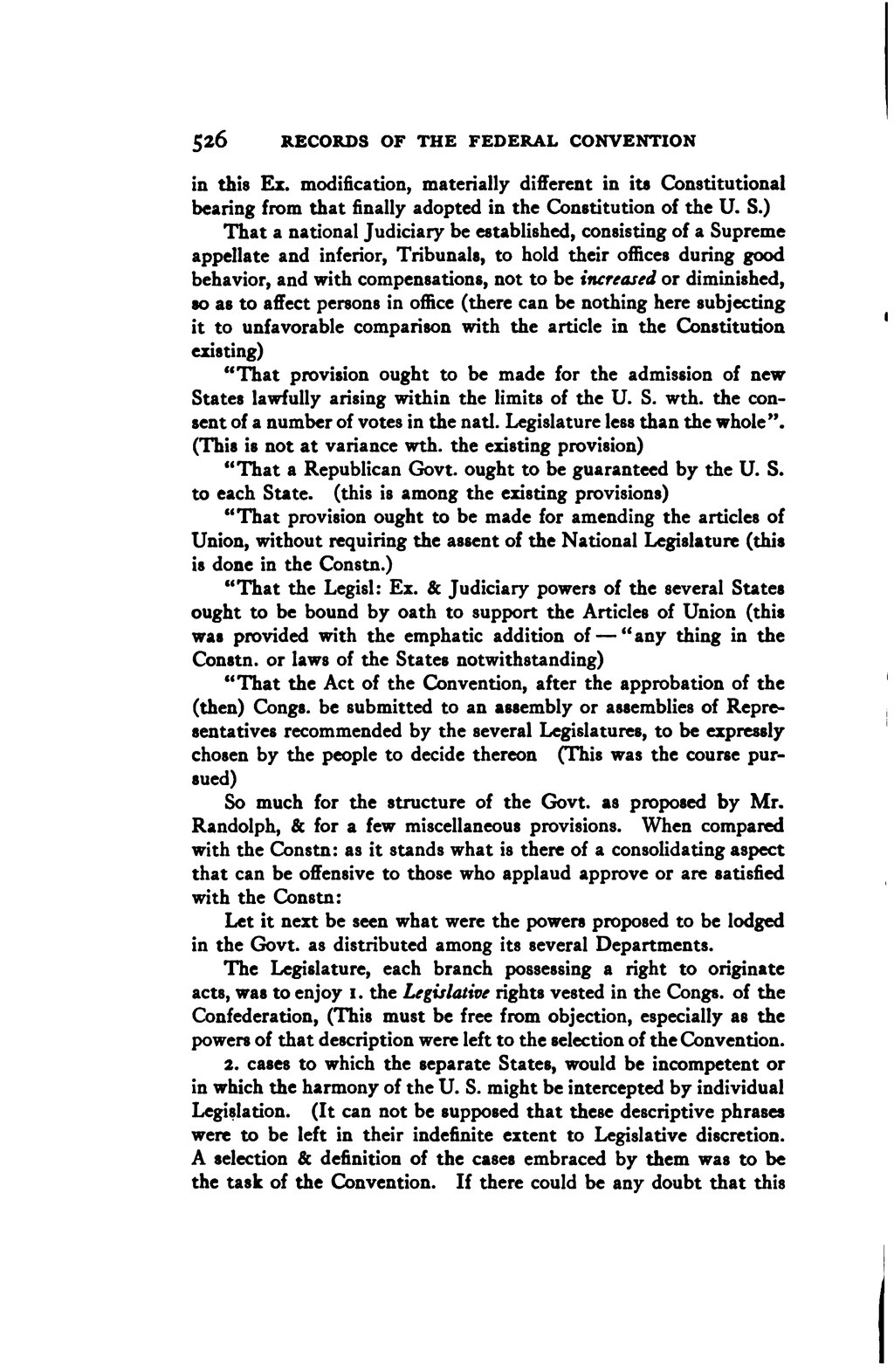in this Ex. modification, materially different in its Constitutional bearing from that finally adopted in the Constitution of the U.S.)
That a national Judiciary be established, consisting of a Supreme appellate and inferior, Tribunals, to hold their offices during good behavior, and with compensations, not to be increased or diminished, so as to affect persons in office (there can be nothing here subjecting it to unfavorable comparison with the article in the Constitution existing)
“That provision ought to be made for the admission of new States lawfully arising within the limits of the U. S. wth. the consent of a number of votes in the natl. Legislature less than the whole”. (This is not at variance wth. the existing provision)
“That a Republican Govt. ought to be guaranteed by the U. S. to each State. (this is among the existing provisions)
“That provision ought to be made for amending the articles of Union, without requiring the assent of the National Legislature (this is done in the Constn.)
“That the Legisl: Ex. & Judiciary powers of the several States ought to be bound by oath to support the Articles of Union (this was provided with the emphatic addition of—“any thing in the Constn. or laws of the States notwithstanding)
“That the Act of the Convention, after the approbation of the (then) Congs. be submitted to an assembly or assemblies of Representatives recommended by the several Legislatures, to be expressly chosen by the people to decide thereon (This was the course pursued)
So much for the structure of the Govt. as proposed by Mr. Randolph, & for a few miscellaneous provisions. When compared with the Constn: as it stands what is there of a consolidating aspect that can be offensive to those who applaud approve or are satisfied with the Constn:
Let it next be seen what were the powers proposed to be lodged in the Govt. as distributed among its several Departments.
The Legislature, each branch possessing a right to originate acts, was to enjoy 1. the Legislative rights vested in the Congs. of the Confederation, (This must be free from objection, especially as the powers of that description were left to the selection of the Convention.
2. cases to which the separate States, would be incompetent or in which the harmony of the U.S. might be intercepted by individual Legislation. (It can not be supposed that these descriptive phrases were to be left in their indefinite extent to Legislative discretion. A selection & definition of the cases embraced by them was to be the task of the Convention. If there could be any doubt that this
